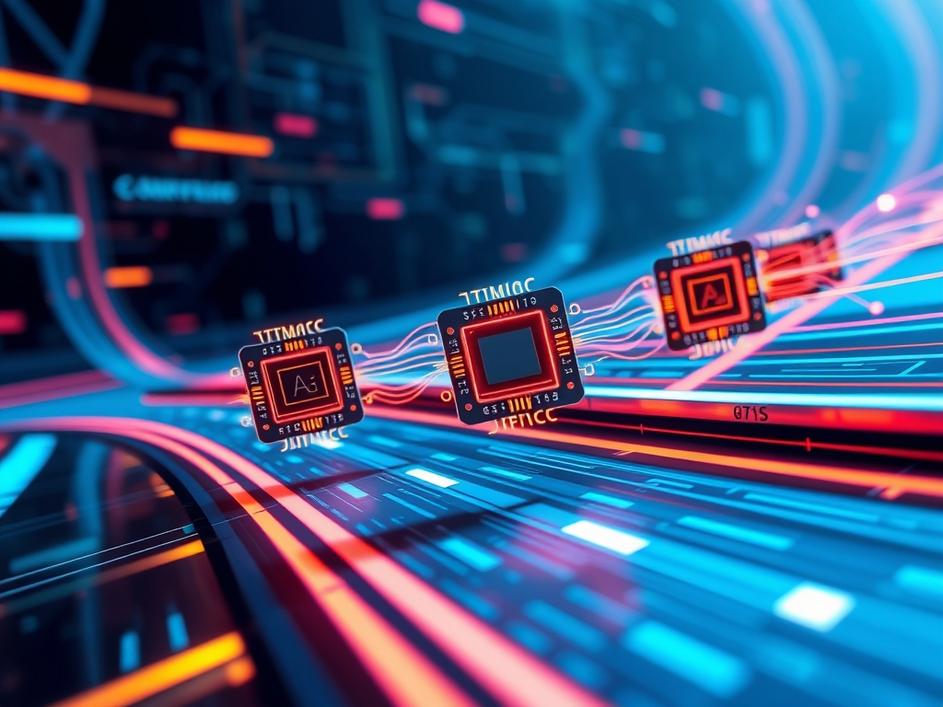


We are a digital agency helping businesses develop immersive, engaging, and user-focused web, app, and software solutions.
2310 Mira Vista Ave
Montrose, CA 91020
2500+ reviews based on client feedback

What's Included?
ToggleFor a while now, when people talked about the really powerful brains behind artificial intelligence – the chips that make all the magic happen – two names often came up: Nvidia and, to a lesser extent, AMD. They’ve been leading the charge, especially when it comes to the huge data centers that power our AI tools. But imagine a new player stepping onto a very crowded field, not just to compete, but to truly challenge the existing champions. That’s exactly what happened this week. Qualcomm, a company many of us know best for the chips in our smartphones, just announced they’re rolling out two brand new AI chips. This isn’t just another product launch; it’s a clear signal that the race for AI dominance is about to get a lot more intense, and a lot more exciting for everyone watching.
Think about everything AI touches today, from the smart assistants in our phones to the complex programs creating images and text, and even the self-driving cars on the horizon. All of this needs incredible processing power. These aren’t just regular computer tasks; they involve crunching massive amounts of data and performing countless calculations at lightning speed. That’s where specialized AI chips come in. Nvidia has built a massive business by making graphics processing units (GPUs) that turned out to be perfect for these kinds of AI tasks. They practically had the market cornered for the longest time, especially for the high-end stuff found in corporate data centers. Their chips became the gold standard, the go-to solution for anyone serious about AI development and deployment. This created a highly concentrated market, and while great for Nvidia, it also meant less choice and potentially slower innovation for everyone else. Any serious competition here is bound to ripple through the entire tech ecosystem.
So, what makes Qualcomm different, and why should we pay attention? Well, Qualcomm isn’t new to making powerful processors. They’ve been designing chips for our mobile devices for decades. This experience means they know a thing or two about making chips that are not only powerful but also very efficient with power, which is super important in the mobile world. But AI chips for data centers are a whole different beast than those for a phone. Still, their deep expertise in chip design, along with their relationships with device makers, gives them a unique starting point. They’re not just throwing darts; they’re bringing their proven engineering muscle to a new battleground. It’s like a seasoned athlete from one sport deciding to try their hand at another, bringing transferable skills and a fresh perspective.
This move by Qualcomm is really important because it introduces a fresh challenge to the current leaders. When there’s more competition, everyone has to work harder, innovate faster, and often, prices become more competitive. This is good news for companies and researchers who need these powerful chips. Nvidia and AMD will now have to factor in Qualcomm’s presence when planning their next moves. It forces them to push boundaries even further. For a long time, the narrative was about Nvidia’s dominance, but now, it’s about a three-way (or more) race. This kind of intense competition is usually what drives the biggest leaps forward in technology. We’re talking about a significant push towards faster, more efficient, and potentially more affordable AI solutions across the board.
Qualcomm’s jump into high-end AI chips could change a lot. First, it might lead to more diverse AI hardware. Different chips are often better at different kinds of AI tasks. More variety means more specialized tools for developers, which can speed up new AI breakthroughs. Second, it could help spread AI capabilities more broadly. If Qualcomm can bring its efficiency expertise to this space, it might lead to AI solutions that require less power or are more cost-effective to run. This isn’t just about making bigger, faster supercomputers; it’s about making AI more accessible and practical for a wider range of uses, from huge cloud services to smaller, on-device AI applications that don’t need to connect to the internet. We could see entirely new AI products and services emerge because of this push for better, more varied hardware.
The chip market has always been about constant innovation and fierce competition, but the AI era has kicked things into overdrive. Qualcomm’s entry isn’t just about their stock price going up; it’s about the whole industry taking a collective step forward. While Nvidia has done an incredible job pioneering this space, having another major player with significant resources and a different approach can only benefit the entire ecosystem. It means more choices for developers, more pressure for innovation, and ultimately, a faster pace of advancement for artificial intelligence itself. We’re entering a period where the foundational technology for AI will evolve at an even more rapid rate. And in the end, that means better, smarter AI for all of us, powering everything from our daily tools to the biggest scientific discoveries.



Comments are closed